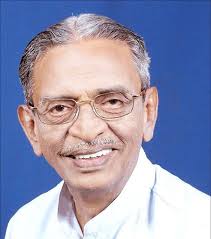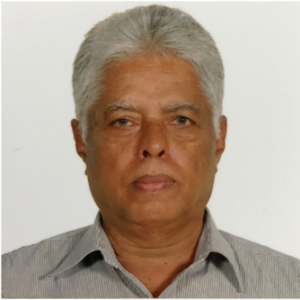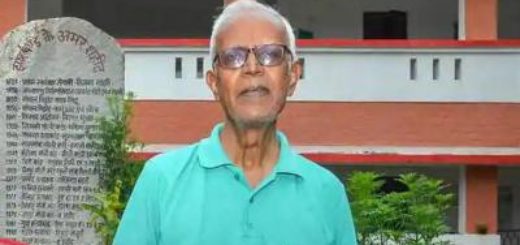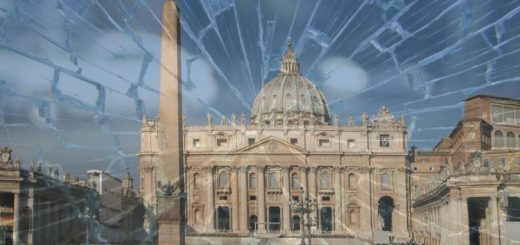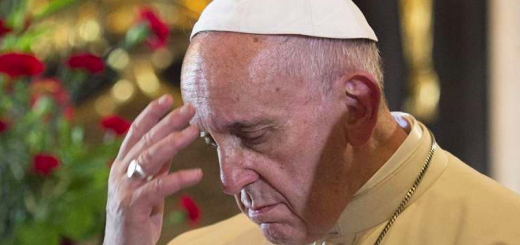Born Free, But Are We Living Free? – Varghese Pamplanil

Thinking class, break up your Fetters!
Here is once again another marathon research article, rational, philosophical, theological and historical by our esteemed columnist Pamplanil,though he claims to be none in any of these fields of research.
He says he was and is just a banker but also a voracious reader of books and sleepless thinker when challenging thorny questions – social, political, rational, religious, philosophical or theological questions are thrown at him. He may not go fighting, but he can’t sleep until he finds satisfactory answer to them.
Friends for what?
He may not hesitate to phone up friends like me, even at the dead of night and go on discussing thorny issues endlessly! Otherwise what use are friends like me for? He knows it well!
But what is most intriguing to me is that there are ever so many eminent doctors, professors, teachers and professional preachers among our readers in all these fields who parade themselves to be the last word or leading lights on these controversial issues and consider it their bounden duty and life’s mission to add their light, advise, correct or reprove against misleading deceptive views harmful to the general public.
Intriguing Question!
Yes, what is intriguing is that all of them keep their mouths shut (unlike the innocent child who burst out ‘the King is naked’) and never engage in a public, productive discussion though all of us know, no one has any monopoly on any subject. One shining example is that of Benedictine Sister Chittister on ‘Power and Leadership’, we posted yesterday in CCV. Even the grave digger among us has something to teach all of us. Doesn’t he?
Your 2nd or 3rd Opinion please!
Pamplanil is discussing life and death issues for all of us. Definitely, his need not be last word on them. All have a right to get a second or third opinion on them. So preachers and teachers of the world unite to speak up, you have nothing to lose except the chains people think you are bound up and ganged! Have we to evangelize even the Evangelizers to become martyers? james kottoor, editor ccv.
Please read below Pamplanil speaking!
Born Free, But Are We Living Free?
A scenario.
In his perceptive novel “1984” George Orwell describes graphically how the “BIG BROTHER” keeps a 24/7 watch over the various activities of the people under his control. The novelist also explains how the Big B. manipulates access to information by “double think”, “no speak” and “obliteration of past records”. Big B watches everyone and everything through a TV screen. Nobody knows who actually he is; he is the public face representing the Party.
The Party is “invincible” and it is the “custodian of objective truth”. The Party is not interested in the good of others, it is interested solely in having absolute unchallenged power. It brooks no opposition. Opponents are ruthlessly annihilated.
The book is set in '1984' in Oceana governed by the “all controlling Party” which has brainwashed the people into unthinking obedience to its leader, the Big Brother. The Party has created a propagandist language Newspeak; this official language of Oceana is designed to reduce vocabulary, in order to restrict free thought. The Newspeak dictionary has a word “double think” (belief in contradictory ideas simultaneously). The Party’s slogans include “Freedom is Slavery” “Ignorance is Strength”. The Party maintains control through the “Thought Police” and continual surveillance. Posters throughout the city warn the residents that “Big Brother is Watching You”
The book’s hero Winston Smith belongs to the Outer Party in the periphery of Oceana society. His job is to rewrite history in the Ministry of Truth by obliterating and manipulating past records. Freedom loving Winston becomes interested in an organisation named Brotherhood, a group of dissenters operating in secret. Unaware to them, however, their activities are meticulously watched by the Big Brother.
Winston wishes for privacy, intimacy, love and freedom but cannot express his opinions openly for fear of death. Such thoughts are branded “thought crimes’ punishable by arrest, imprisonment, torture and often death.
Oceana is always in perpetual war mode against the neighbouring countries. The country remains always in a state of flux, wars and alliances come and go for no reason. Today’s friend is tomorrow’s foe; opportunistic alliances and their breaking up are the order of the day, without any rhyme or reason. In order to engage in fighting with the perceived enemies, thousands of foot soldiers are required at any point of time. To this end in view, the Party urges people to produce more children.
Sex is permitted only for procreation. The Party is “entirely against any sort of sexual pleasure”. In fact, sexual repression is the tenet of the Party. The Party must approve each and every marriage; it is unacceptable for couples to express any physical attraction, intimacy or affection for one another; all the energy of the population must be devoted to the Party.
Winston was once married to Katherine. His wife was a frigid, mindless woman, entirely loyal to the Party, she “thought sex was a vile activity”; she regulated sex between her and Winston by scheduling their sexual intercourses. For her having sex is “duty to the Party’. Winston’s relationship with Kathrine was always tense. Couples who can’t conceive children are allowed to be separated; but divorce was never allowed by the Party. So Winston and Katherine live apart. He doesn’t even know of her whereabouts.
Winston by chance meet Julia in his work place and they start a love affair. Julia was a “covert from the waist downwards”. They made love clandestinely in a secluded and sparse room thinking that they are safe from the radar of the “Big Brother”. But no one can escape the eagle eyes of the Big Brother. They were eventually caught and sent to the “Ministry of Love” for a violent re-education intended not only to break them physically but also to root out their independence, destroy their dignity and humanity. Winston’s phobia about rats is used to torment him. By betraying Julia inadvertently, he was exonerated. Winston, a damaged, changed, empty shell of a man is then released into the world. Winston and Julia drifted apart.
The “Big Brother” Catholic ecclesiastic
What is happening in the Syria-Malabar Church seems to be similar to the grim picture painted by George Orwell in 1984 word by word and frame by frame. Sexual unions among Catholic couples are constantly monitored by the Catholic clerics. Even murder, theft, looting, and wanton exploitation of the disadvantaged, pale into insignificance compared to the “sin of sex” which the Church calls derisively “fornication’.
For more than a century, Church has been following the regime of indexing books (since 1870) which the laity were allowed to read. No book could be published by a Catholic without prior approval (imprimatur) of the Church. Added to all these draconian measures, came the claim of infallibility of the pope (1870). The Big Brother Pope cannot err. The followers of the Catholic Church are treated, even today, as “brainless sheep” to be controlled by the shepherd bishop with his crook, through his clerical deputies. The average Catholic “sheep” seem to be contend with their quota of clerical nostrums. Once they partake the “opium of religion” they remain in blissful intoxication.
Excess religiosity is the hallmark of decease ridden, socially and economically deprived underdeveloped third world regions. India is a prime example of this retarded mind set, the underlying reason for this sorry state of affairs is intellectual backwardness. While the rest of the world makes rapid strides in the development of new technologies and making mind boggling inventions, we Indians, by and large, lag behind.
The constricting hold on the minds and consciousnesses of the followers of the Catholic religion is unparalleled. From the cradle to the grave, the tyranny of the Church continues. Each and every Catholic is branded as a “gross sinner”. The Catholic he or she is kept in a “state of perpetual sin”. Even after the death of a believer, there is no escape from the hounding of Church of the children in the name of “purgatory.”
A newly born to Catholic parents is stamped permanently with the “Mark of Cain.” Even before the innocent infant takes its first breath for survival, it is condemned with the odium of “original sin” (what the heck is this sin?), since its parents had to resort to sexual intercourse to create the new life. The ordeal continues, first in the form of “water dunking” (baptism); how ludicrous is the claim that a Catholic cleric can undo the Will of His God by uttering meaningless mambo jumbo accompanied by sprinkling some tap water on a wailing infant.
The first sin of disobedience was supposed to have been committed by Adam by his disobedience to God’s express command not to eat the fruit of the “Tree of Knowledge”. But Adam during the course of his 850 or so years of life span would have eaten the “forbidden fruit” of Eve many a time with impunity. His God apparently did not lift even his little finger against Adam’s and Eve’s merry “knowing of each other”. Then why the hell, the Church condemns sexual inter-courses between Catholic men and women and proclaim that the innocent teeny weeny Catholic infants born out of such unions would end up in Limbo unless baptised by a Catholic cleric, who could be a child abuser, womaniser or a drunkard.
The ordeal doesn’t stop there. Then comes the infernal auricular confession from the very childhood. What sin a minor of less than 10 years of age can possibly commit? Pinching the sibling or eating chocolates on the sly or playing pranks? Are these normal and common demeanours require auricular confession? With a view to injecting “sense of guilt and sin”, a Catholic child is subjected to the charade called confession after an elaborate brain washing and injecting sense of guilt in its psyche. Further atrocities are heaped on a Catholic child in the form of ridiculous catechism instructions calibrated to turn it into a life-long “opium eater”.
Many charlatans travel the length and breadth of globe with their charismatic circuses and other shenanigans cleverly touted as means for the absolution of sins of every hue. The end result, after emptying the entire contents of their wallets, large number of Catholics wander around as zombies, their brains burdened with the so called sins till they die. There are plenty other ceremonies, rites and other gimmicks which in plain terms, are aimed at money grabbing.
The most money spinning charade of the clerics is charging, supposedly, for saying prayers for the release of souls of the departed from “purgatory”. The common belief is: as soon as a person is dead, the soul, if any, is judged by the “judgemental god”, if any, on the spot for enjoying eternal bliss in heaven, if any, or being condemned to hell, if any. “Purgatory” is the most clever and diabolical invention of the shaman clerical class to loot money from the “sheep” in order to fill their ever hungry bellies without doing any useful work. The money thus plundered may come to billions of Indian and other currencies.
Let the sheep bleat till their vocal cords rapture and their voices crock; they can perish in the hell their clerics so cleverly conceived and marketed.
Individual Autonomy
Autonomy in moral and political spheres is the central value in the philosophy of Immanuel Kant. It was given fundamental status by John Stuart Mill (1806-73).
J. S. Mill held the view “that actions are in the proportion as they lend to promote happiness, wrong if they lend to produce reverse of happiness”. For Mill pleasure depend on distinctively human capacities, which have more complex cognitive elements, requiring abilities such as rational thought, self awareness or facility of language. Lower pleasure requires mere sentience.
Mill proclaimed that it is better to be a dissatisfied human than a satisfied PIG because of the superior quality of human experience. In his view, the individual is free to do as she/he wishes unless she/he harms others. Individuals are rational enough to make decisions about their well-being.
The sole end for which mankind are warranted, individually or collectively, in interfering with the liberty of action of any of their, members is self-protection. That the only purpose for which power can be rightfully exercised over any member of a civilised community, against his/her will, is to prevent harm to others…. The only part of the conduct of any one, for which he/she is amenable to society, is that which concerns others. In the part which merely concerns him/her, he/she has the inborn right, absolute and inalienable; , over himself/herself over his/her own body and mind the individual is sovereign.
Mill outlines the benefits of “searching for and discovering truth” as a way to further knowledge. He argued that even if an opinion is false, the truth can be better understood by refuting the error. And most opinions are neither completely right or wrong.
Individual autonomy is the idea that is generally understood to refer to the capacity to be one’s own person, to live one’s life according to reasons and motives that are taken as one’s own and not the product of manipulative or distorting external forces.
In its simplest sense, autonomy is about a person’s ability to act on his/ her values and interests … In order to to do these things, the autonomous person must have sense of self worth and self respect. Self knowledge is also important including a well developed understanding of what matters.
Individual autonomy is an idea that is generally understood to refer to the capacity to be one’s person, to live one’s life according to reasons and motives that are taken as one’s own and not the product of manipulative or distorting external forces. It is a central value in the Kantian tradition of moral philosophy but it is given fundamental status in J. S. Mill’s version of utilitarian liberalism.
Summation
“To put most simply, to be autonomous is to be one’s own person, to be directed by considerations, desires, conditions and characteristics that are not simply imposed externally upon one, but are part of what can some how be considered one’s authentic self. Autonomy in this sense seems an irrefutable value, especially since the opposite — being guided by forces external to one’s self and which one cannot authentically embrace —seems to mark the height of oppression” (Stanford Encyclopaedia of Philosophy)
Varghese Pamplanil.

